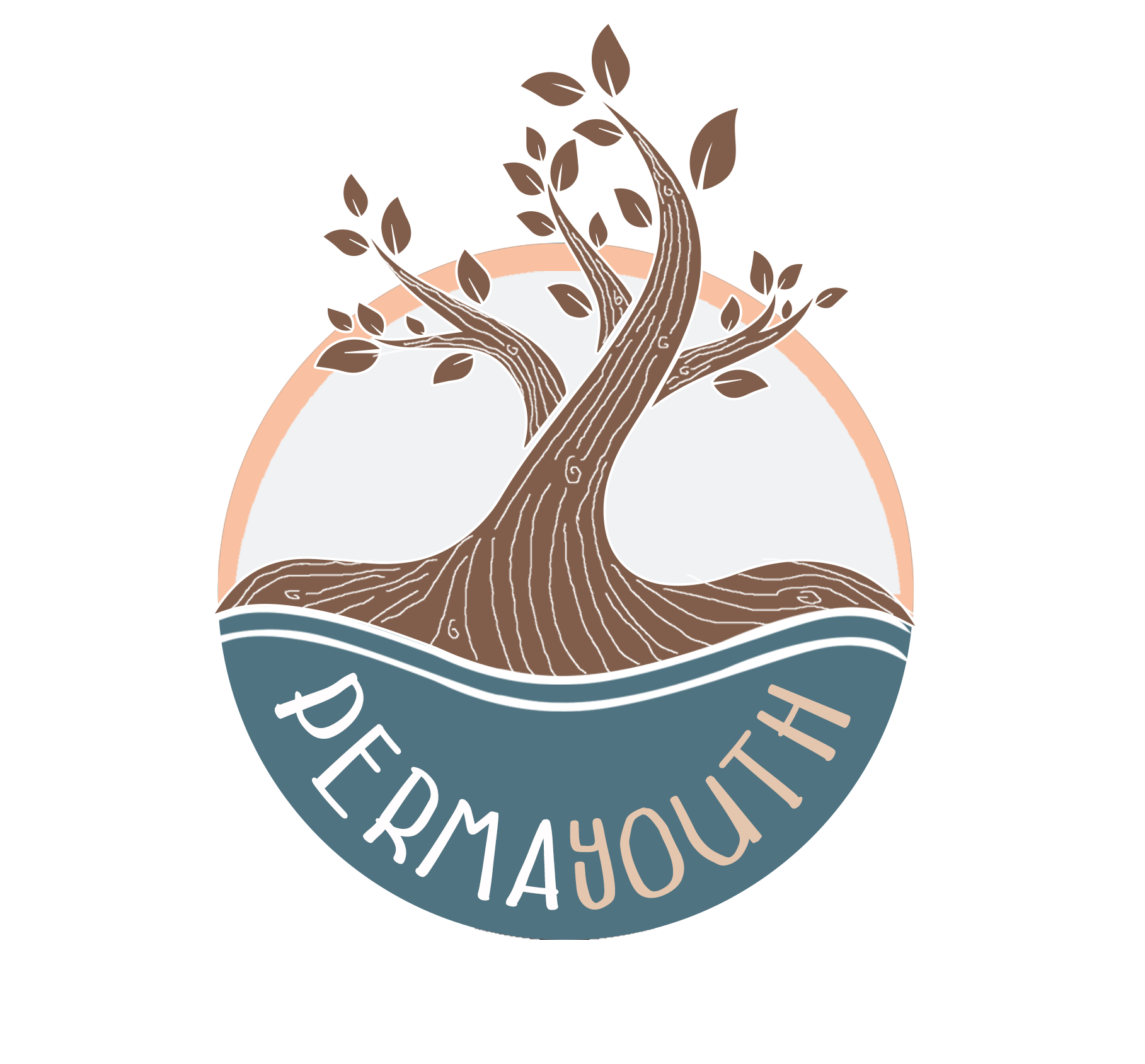📖 Introduction to the Lesson
Welcome to Chapter 10! This lesson invites you to pause, breathe, and reflect—not just on ecosystems and energy flows, but on yourself and your connection to the world. 🌍 Permaculture reminds us that sustainability isn’t just external—it starts from within. When we care for ourselves and each other, we create the foundations for a healthier, more resilient world.
🌳 Health, Nature, and the Nervous System
Let’s begin with a simple question: why does nature feel good?
Our bodies evolved in natural environments. Trees, birdsong, running water—these aren’t luxuries. They’re what our nervous system is calibrated for. But modern life, especially in urban areas, bombards us with noise, speed, and overstimulation. This triggers the body’s sympathetic nervous system—our fight-or-flight mode—leading to stress, anxiety, and burnout.
Spending time in natural settings activates the parasympathetic nervous system, which governs rest, digestion, and healing. This shift:
- Lowers cortisol (the stress hormone)
- Reduces heart rate and blood pressure
- Increases immune system activity
- Improves cognitive function and emotional balance
In Germany, the IM-WALD-SEIN® Institute for Forest Medicine and Therapy offers structured forest therapy programs that demonstrate these effects. Participants regularly report lower stress levels and a greater sense of inner peace.
You don’t need a deep forest. A park, garden, or even sitting under a tree can offer these benefits.
🌻 Growing Together: Gardens and Community Well-being
Physical health and mental health go hand in hand. And nothing supports both quite like community gardening.
In Ireland, the GIY (Grow It Yourself) initiative and the Community Gardens Ireland Network have created a model where growing food becomes a tool for healing. These shared spaces offer more than vegetables:
- They reconnect people with seasonal rhythms.
- They foster collaboration, purpose, and pride.
- They increase access to healthy, local food.
Gardening has been shown to reduce depression, improve sleep, and even build stronger immune responses. More than that, it creates shared meaning and joy. And in a time of growing isolation and mental health struggles, this matters more than ever.
👉 Learn more: https://cgireland.org/about-the-community-garden-network/
🧠 Personal Growth Is Social Growth
Permaculture doesn’t end with landscapes. It also teaches us to design personal and social systems that regenerate, not deplete.
That includes:
- Lifelong learning
- Creative expression
- Teaching others
- Building emotional resilience
In Scotland, Lusi Alderslowe runs the Children in Permaculture program, integrating permaculture into education. Kids learn not only about plants and cycles but also how to care, observe, and adapt. These are life skills.
But growth isn’t just about feeling better personally. We can’t meditate our way to joy if the world around us is falling apart. Permaculture invites us to hold both truths:
- Yes, care for yourself.
- But also, contribute to a more just, balanced world.
Well-being isn’t individual—it’s communal. True health comes when we’re part of systems that care for people and planet.
👉 Explore: https://lusialderslowe.org/courses/?utm
🌀 Design for Inner Landscapes
Permaculture teaches about zones—starting at Zone 0: the self. But just like outer landscapes, our inner worlds benefit from intentional design.
How do we:
- Create time for reflection and rest?
- Understand our emotional triggers?
- Align our values with our actions?
Tools like journaling, meditation, creative practice, and nature walks can be designed into daily life as regenerative routines.
Design mindset means not just reacting to life—but shaping it. Like in a garden, we observe, experiment, adjust, and grow. And permaculture gives us the ethics to guide it: care for the Earth, care for people, and fair share.
🛠️ Activity: Nature Reflection
Spend 20-30 minutes in a natural space. Don’t bring your phone or music. Simply sit, walk, or lie down. Tune into your senses.
Afterward, reflect:
- How did your body feel?
- What changed in your thoughts or emotions?
- Did it inspire any creative ideas?
You can journal or draw your reflections—and share online with #PermaYouthHealth.
📚 Further Reading & Resources
✅ Conclusion
Our health is not separate from the planet—it reflects it. In a world facing ecological, social, and mental crises, tending to the inner landscape is an act of resistance and regeneration.
Permaculture shows us that true sustainability must include people care—starting with ourselves, but never ending there. When we feel better, we act better. And when we act with care, we create ripple effects that reach far beyond our own lives.
Let your journey toward wholeness be a seed of transformation for your community and the Earth.
